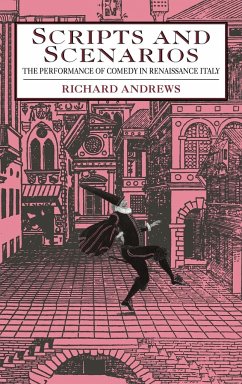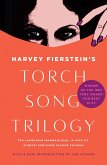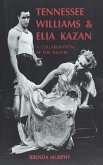The Italian Renaissance produced a new type of stage comedy, experimental and even revolutionary in its time, by copying and updating the dramatic formats of Plautus and Terence from ancient Rome. These scripted comedies, first written and performed for private audiences, ranged in tone from sober moralism to scurrilous farce, and influenced European dramatists from Shakespeare to Molière and Lope de Vega. This book gives an account of how the new dramatic experiment was born and grew, moving from closed courtly audiences to a wider public. It examines the performing values of these scripts rather than their literary qualities, in order to demonstrate their links with improvised commedia dell'arte, and thus explores a crucial phase in the development of European theatre. It will be of interest to scholars and students in both theatre history and Italian studies.
Table of contents:
Preface; Introduction: Italy in the sixteenth century; 1. Precedents; 2. The first 'regular' comedies; 3. The second quarter-century, outside Venice; 4. The second quarter-century, Venice and Padua; 5. Improvised comedy; 6. Obstacles to comedy; 7. Scripts and scenarios; Notes; Chronological bibliography of comedies, 1500-1560; General biblography.
This book examines the scripted stage comedies of the Italian Renaissance, highlighting their relatively unexplored links with improvised commedia dell'arte and thus exploring in a new way a crucial phase in the development of European theatre.
Examines in a new way the innovative and influential scripted comedies of the Italian Renaissance.
Hinweis: Dieser Artikel kann nur an eine deutsche Lieferadresse ausgeliefert werden.
Table of contents:
Preface; Introduction: Italy in the sixteenth century; 1. Precedents; 2. The first 'regular' comedies; 3. The second quarter-century, outside Venice; 4. The second quarter-century, Venice and Padua; 5. Improvised comedy; 6. Obstacles to comedy; 7. Scripts and scenarios; Notes; Chronological bibliography of comedies, 1500-1560; General biblography.
This book examines the scripted stage comedies of the Italian Renaissance, highlighting their relatively unexplored links with improvised commedia dell'arte and thus exploring in a new way a crucial phase in the development of European theatre.
Examines in a new way the innovative and influential scripted comedies of the Italian Renaissance.
Hinweis: Dieser Artikel kann nur an eine deutsche Lieferadresse ausgeliefert werden.




![On Ne Badine Pas Avec L'Amour: Comédie En Trois Actes [Publiée En 1834, Représentée Pour La Première Fois ... 1861 ...] On Ne Badine Pas Avec L'Amour: Comédie En Trois Actes [Publiée En 1834, Représentée Pour La Première Fois ... 1861 ...]](https://bilder.buecher.de/produkte/71/71541/71541302m.jpg)



